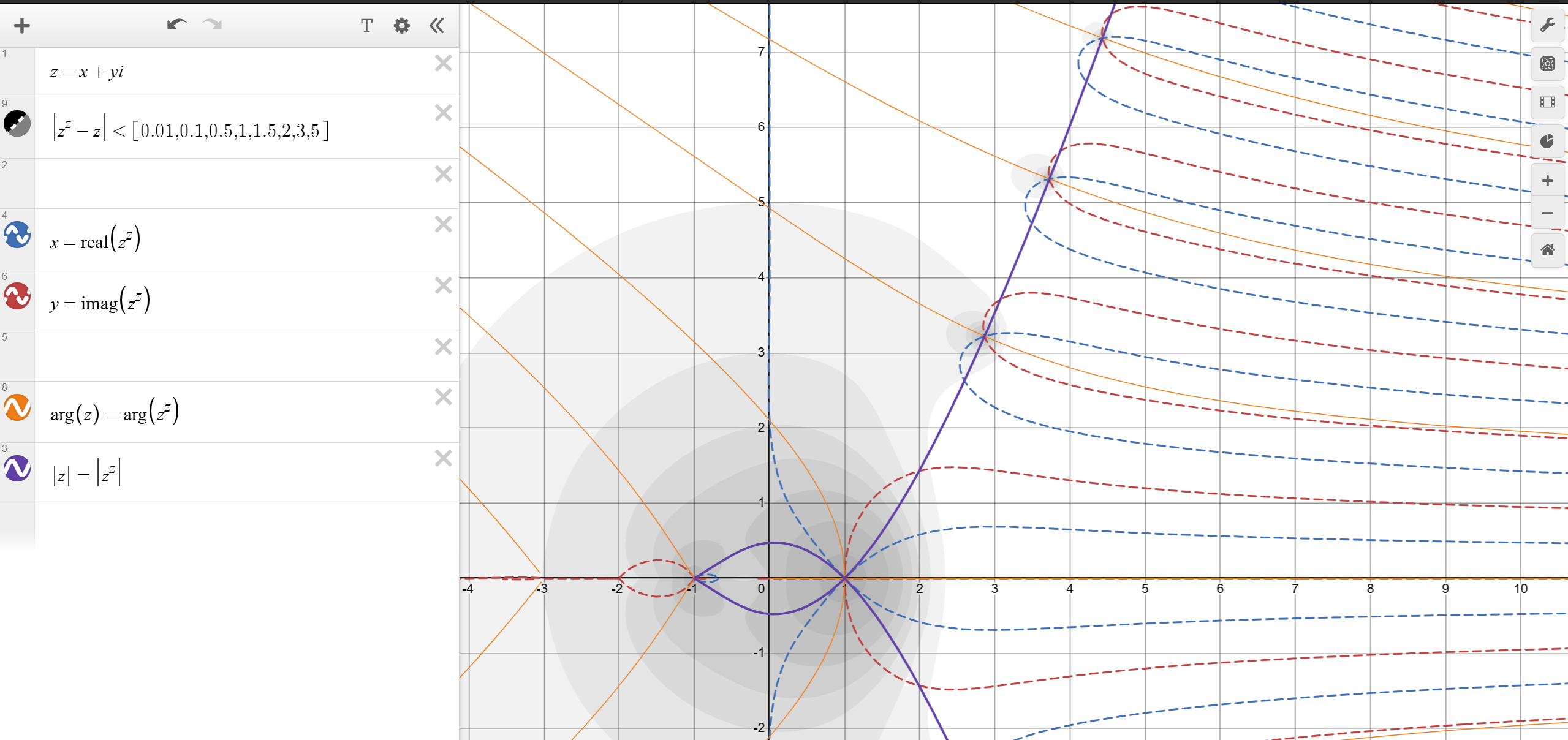Motivation: Analyzing solutions to z = z^z
So I've been approaching this (probably futile and transcendental) equation for a while, from a variety of angles. Below is a basic desmos screenshot of the various components.  The most promising has seemed to be via first parameterizing |z| = |z^z|. Perhaps via an explicit function of x for y. As an undergrad barely familiar with complex analysis, any potential solution has evaded me. Finding a solution, for any of the relations, probably requires some Lambert W stuff if a solution is even possible.
The most promising has seemed to be via first parameterizing |z| = |z^z|. Perhaps via an explicit function of x for y. As an undergrad barely familiar with complex analysis, any potential solution has evaded me. Finding a solution, for any of the relations, probably requires some Lambert W stuff if a solution is even possible.
So I checked wolfram. And mostly, it just tells me it also can't find a solution. Fine enough. Except for when I check |z| = |z^z|. Then, sometimes it tells me something involving some seemingly internal and buggy components.
This can most easily be seen via the wolfram alpha link: https://www.wolframalpha.com/input?i2d=true&i=%7Cx%2Byi%7C%3D%7CPower%5B%5C%2840%29x%2Byi%5C%2841%29%2C%5C%2840%29x%2Byi%5C%2841%29%5D%7C
The input is read correctly. It correctly plots an implicit. But for example, it tells me that a solution is "y = -Im(x) + e^Re(K$4071615[1]) + i Re(x)" which is nonsensical. The value after the dollar sign changes with each load of the page.
I also see this behavior in Wolfram Mathematica 13.3, via Reduce. For example, my input:
Reduce[Abs[x + y*I] == Abs[(x + y*I)^(x + y*I)] && x > 1 && y > 0, {x,y}, Complexes]
returned the output:
E^Re[K$109780[1]]>1&&1<x<E^Re[K$109780[1]]&&y==Sqrt[E^(2 Re[K$109780[1]])-x^2]
Which is again, nonsensical. None of the K components let me view documentation, and seemingly randomize with each evaluation. I haven't found much about this problem via searching online, apart from confirming that the k dollar sign notation has to do with the internal evaluation.
Expected Behavior: I expect that Reduce would either output itself and an error about the system being unsolvable, or output an equivalent mathematical expression which contains functions and quantities with documentation.
It's fully likely the solution doesn't have any finite representation using standard functions and such. Wolfram can't change which transcendental functions have computable roots, but I doubt this behavior is an intentional way to convey that. Or maybe there is something useful buried by this error... Either way, thanks for reading and any suggestions/help.